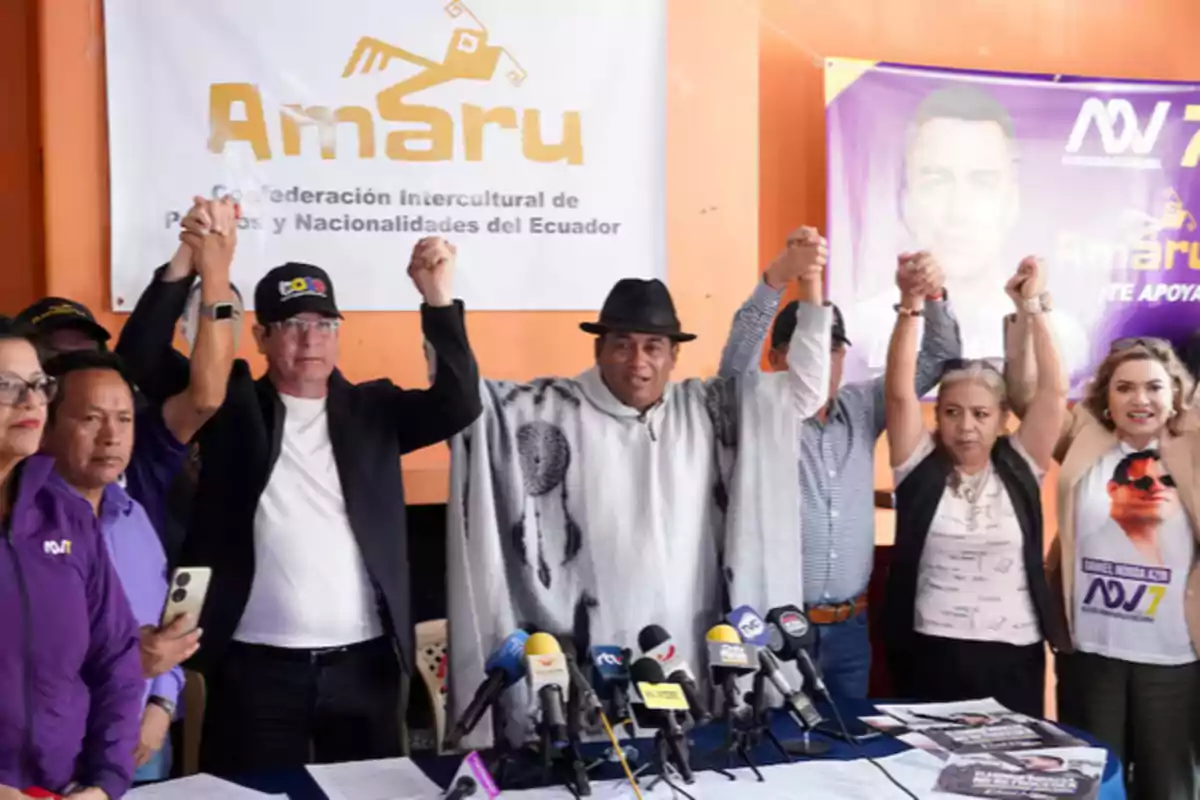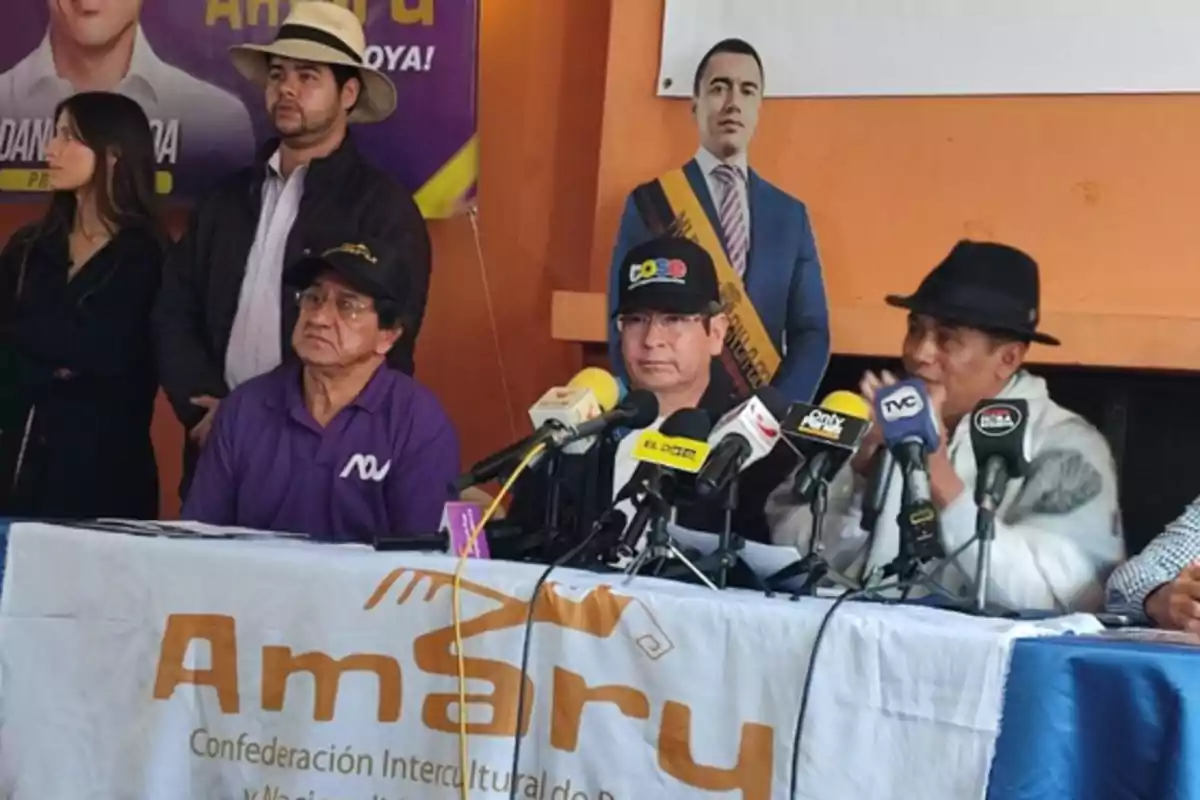
The Amaru Confederation supported Daniel Noboa and rejected Correa's past
Rural peoples and nationalities stated that the authoritarianism of the Citizen Revolution is not an option
The Intercultural Confederation of Peoples and Nationalities of Ecuador, known as Amaru, announced its electoral support for President Daniel Noboa for the second round. Its leader, Luis Simbaña, confirmed on March 25 that the bases in the fifteen provinces where they have a presence will support the candidate of National Democratic Action.
Simbaña explained that Noboa's proposals address the urgent demands of the countryside, such as contingency programs during the winter season, strengthening irrigation channels, and a national energy plan. He also highlighted that security is no longer just an urban problem but strongly affects the rural sector.
The leader emphasized that for Amaru, it is not about left or right ideologies, but about concrete responses. In that sense, Noboa represents an option for dialogue, work, and solutions in the face of historical neglect. "Farmers don't understand ideologies, they understand results," Simbaña pointed out.
Additionally, the support is based on preventive health programs, telematic education, inclusive scholarships, and measures to reduce forced migration from rural areas. The Confederation hopes these promises will translate into real public policies and announced that it will monitor the fulfillment of the government plan.

Direct Rejection of the Past of the Citizen Revolution
Simbaña was emphatic in declaring that Amaru will not support Luisa González, candidate of the Citizen Revolution. He stated that "we already know how they governed" and that in their organization there is no room for authoritarianism or sectarianism, referring to the political model represented by Correa's administration.
In contrast, he said that Noboa's project is open to dialogue and citizen oversight. He made it clear that they will not allow a new stage of polarization or exclusion, like the one that, according to them, marked the previous RC governments.
The Amaru Confederation also distanced itself from Conaie, stating that it doesn't represent all the voices of the country. "It doesn't speak for mestizos, montuvios, Afro-Ecuadorians, indigenous people, or for the men and women of the countryside," Simbaña expressed.
With this support, Daniel Noboa adds a new social bloc to his candidacy, consolidating his presence in historically marginalized rural sectors. Meanwhile, Luisa González faces the weight of the past and the rejection of those who were once close to Correa's administration.
The Amaru Confederation chose leadership that looks to the future with concrete proposals, distancing itself from the sectarianism of the past. With the support of peoples and nationalities, Daniel Noboa strengthens his profile as a real governance alternative for the country.
More posts: